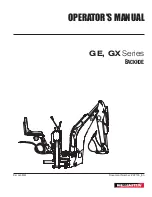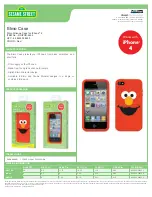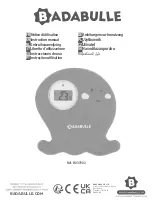
1/5
11-13-568-Rev1
IMPORTANT WARNINGS
Rack Installation
Inadequately secured loads and incorrectly mounted roof
racks and accessory racks can come loose during travel
and cause serious accidents! Therefore, installation,
handling and use must be carried out in accordance with
product and vehicle instructions.
In addition to these instructions, review the mounting
instructions for the roof rack and the operating instructions
of the vehicle.
These instructions should be kept together with the
vehicle’s operating instructions and carried in the vehicle
when in use and en route.
For roof racks that do not specify the distance between
the front and rear crossbars, the distance shall be at
least 700mm or as large as possible. Please note that
changes (e.g. additional drill holes) to the accessory rack’s
attachment system are not permissible.
Check attachment hardware and load for tight fit and
function:
• Before the start of any journey.
• After driving a short distance (50 km or 30 minutes)
following rack or load install.
• At regular intervals on longer journeys.
• Every two hours on bad terrain.
• After interruption of a journey during which the vehicle
was left unsupervised. (check for damage due to
outside intervention)
Rack Loading
Do not exceed the maximum load specified for the roof
rack, accessory rack or the maximum load recommended
by the vehicle manufacturer.
Max Roof Load = weight of roof rack + weight of
accessory racks + weight of load.
NOTE - Maximum load limits apply in static and dynamic
situations. Do not overload your vehicle roof or racks at
any time regardless of your vehicle being stationary or in
motion.
Tie down long or wide loads, such as watercraft, at the
front and rear of the load. If it looks like it can catch some
air, it will. Tie it down!
Do not carry odd shaped or unstable objects such as
furniture, mattresses, or any other objects that can not be
securely tied down.
Vehicle Driving and Regulations
The speed driven must be suited to the load transported
and to official speed limits. In the absence of any speed
limits, we recommend a maximum speed of 130 km/h.
When transporting any load, the speed of the vehicle must
take into account all conditions such as the state of the
road, the surface of the road, traffic conditions, wind, etc.
Vehicle handling, cornering, braking and sensitivity to side
winds will change with the addition of roof top loads.
In the event of product use on a vehicle that is driven off
sealed roads the maximum load is reduced by 50% for
clamp mounted systems and 33% for track, fixed point and
other types of mounting systems.
Maintenance
The accessory rack should be carefully cleaned and
maintained, particularly during the winter months. Use
only a solution of water and standard car wash liquid
without any alcohol, bleach or ammonium additives.
Periodically inspect accessory rack for damage. Replace
lost, damaged or worn parts. Use only original spare
parts obtained from a stocking specialist, dealer or
manufacturer.
Any changes made to the roof racks and accessory racks
as well as the use of spare parts or accessories other
than those supplied by the manufacturer will lead to the
lapsing of the manufacturer’s warranty and liability for any
material damage or accidents. You should observe these
instructions to the letter and only use the original parts
supplied.
This document and all of our instructions are reviewed and updated
regularly. Always refer to our websites for the latest revisions.

























